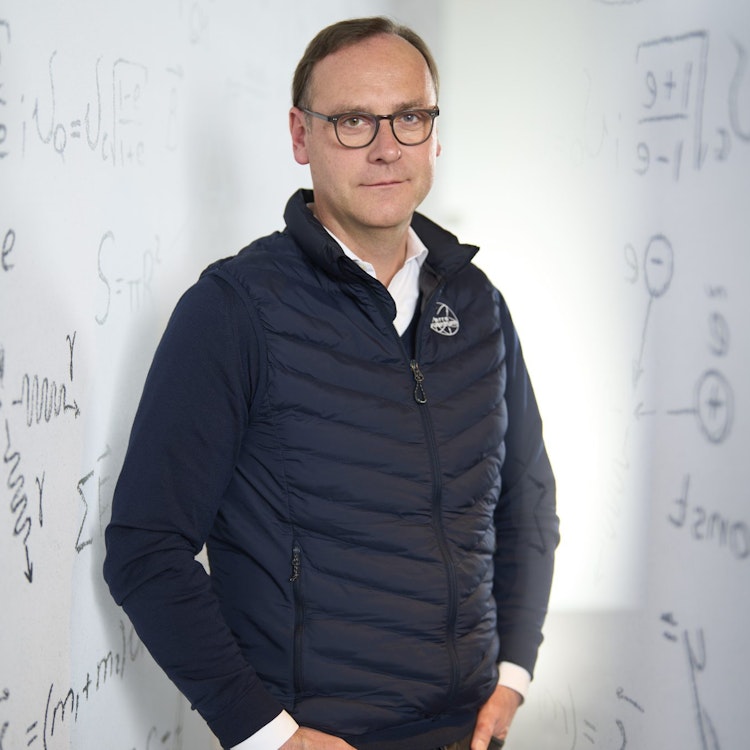Germany’s government must increase subsidies for quantum tech startups to prevent it from lagging behind other nations, the CEO of Terra Quantum says.
Markus Pflitsch founded Terra Quantum, a Swiss-German startup that develops hybrid quantum algorithms, six years ago. He tells Sifted that while the EU “has understood the importance of quantum”, Germany’s support is dwindling.
The German government wants to be able to keep up with US quantum tech companies, and has set out plans to spend €3bn over the next three years to build a universal quantum computer, with some of that money earmarked for contracts with startups.
But a draft 2024 federal budget is putting forward cuts worth €200m to the Quantum Computing Initiative of the German Aerospace Centre over 2024-25, in a bid to comply with a law limiting Germany’s new debt to 0.35% of the country’s GDP each year. The federal budget is expected to be adopted by the German parliament on December 1.
“They are not doing enough,” Pflitsch says, pointing to the transformational power quantum algorithms will have for lots of large German industries, from software to automotive. “There’s so much happening in terms of other priorities that they have missed out on that one.”
Simulating a quantum computer
In the absence of a quantum computer of enough capacity, Terra Quantum has succeeded at simulating the qubits on classical high-performance computers, imitating the behaviour of a quantum computer, Pflitsch says.
He points out that his company has put together “one of the largest libraries in the world” of algorithms able to run on any sort of chip, including current and future quantum processing units (QPUs).
“We thought: ‘what can we do to commercialise quantum software today and not just sit and wait until the quantum hardware is mature enough?’ That’s why we established this so-called hybrid quantum computing,” he says. “We have one of the best performing quantum hardware simulators with 42 logical, high-performance qubits, with no errors.
“And then we showed that with this approach, we do not only outperform today’s native quantum chips but… if we select the use cases from industry wisely, we do outperform the best-in-class classical supercomputing implementations.”
From its headquarters in the Swiss town of St. Gallen, Terra Quantum is helping HSBC bank to optimise risks in its investment portfolio, and the aerospace multinational Thales to maximise its revenue by picking the best images obtained from Earth observation satellites.
Terra Quantum has raised $86m since 2019, with Lakestar as its anchor investor, and has backing from Investcorp, two big German family offices and angel investors from the crypto, blockchain and logistics industries.
The quantum inflection point
On Tuesday, Terra Quantum announced a collaboration with Nvidia to develop quantum-accelerated applications, using the US chipmaker’s QPUs.
The Silicon Valley giant, famous for building chips originally designed for video games which fuelled the boom of generative AI, is now pushing ahead with an open-source project to integrate NVIDIA’s traditional graphics processing units (GPUs) with central processing units (CPUs) and quantum chips in one system.
Pflitsch believes Europe will need quantum technology in order to ride the generative AI wave, as large language models (LLMs) require increasing amounts of computing power, and says advances in quantum chip design and hybrid quantum software are bringing us closer to a “quantum inflection point.”
“You need the quantum intelligence, you need also the quantum software to propel it to the next level,” he says. “One or two years back, there was a fear that we had all this Gen AI hype and a very separate but still to come quantum wave. And now we see these things merge, and they merge quicker than we think. The next level of Gen AI will only be able to [emerge] if you quantum enhance it.”



